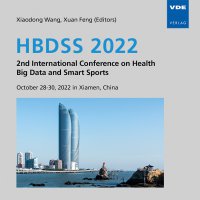Discussion on the Relationship between Ice Conditions and Short-track Speed Skating Performance through Multiple Linear Regression - Based on Data of CO2 Transcritical Direct Cooling Ice Technology
Conference: HBDSS 2022 - 2nd International Conference on Health Big Data and Smart Sports
10/28/2022 - 10/30/2022 at Xiamen, China
Proceedings: HBDSS 2022
Pages: 4Language: englishTyp: PDF
Authors:
Mu, Liang (Winter Olympicschool of Harbin Sport University, Harbin, China & Postdoctoral Workstation of Harbin Sport University, Harbin, China)
Zhao, Mingyuan; Wu, Di; He, He (Winter Olympicschool of Harbin Sport University, Harbin, China)
Zhu, Zhiqiang (Harbin Sport University, Harbin, China)
Abstract:
The carbon dioxide (CO2) transcritical direct cooling ice technology adopted by the Beijing Winter Olympics ice event avenues not only facilitates carbon emission reduction but also effectively ensures the flatness and stability of the ice track surface. It is generally accepted that a clear correlation exists between ice conditions and short-track speed skating performance, which, however, can only be demonstrated through athletes' oral statements without quantification of this relationship. In order to prove the influence of ice quality factors on the performance of short-track speed skating, this paper selected the official results of short-track speed skating in the 24th Beijing Winter Olympics in 2022 as the basic data to establish a multiple linear regression forecasting models, determining the influence of CO2 transcritical direct cooling ice technology on the performance of short-track speed skaters. In addition, a preliminary prediction direction of the future performance of short-track speed skaters was reached based on the data of CO2 transcritical direct cooling ice technology.


